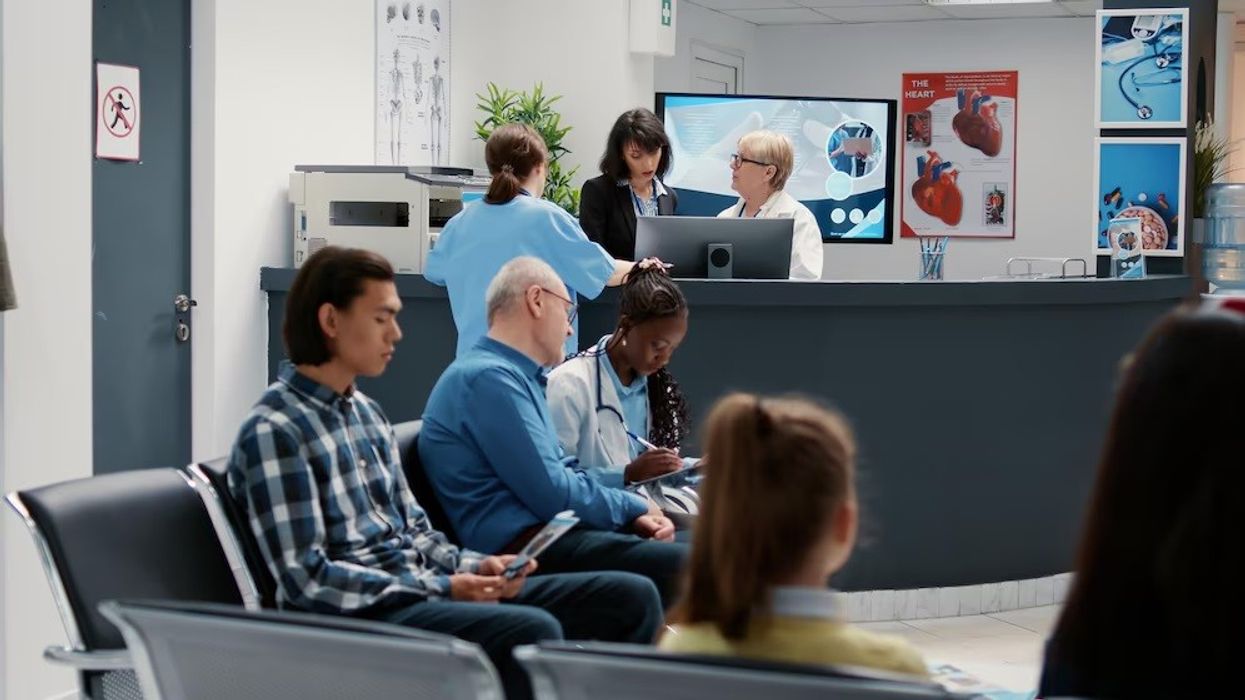Official figures released by the Liberal Democrats reveal that the number of patients waiting four weeks or more to see a GP increased across all regions of England last year
According to the analysis conducted by the Liberal Democrats, patients were forced to wait 28 days or longer to see a GP on 17.6 million occasions last year, marking a significant rise from 12.8 million in 2022.
Figures obtained by The Telegraph showed that the Vale of York experienced the most significant surge, with four-week GP waits climbing from 57,799 to 103,646, marking a 79 per cent increase in one year.
In North Yorkshire, which includes Rishi Sunak's Richmond constituency, there was a 56 per cent increase in the number of patients waiting for a month to see a GP compared to the previous year.
Additionally, areas such as Bury, Blackpool, County Durham, East Leicestershire and Rutland, East and North Hertfordshire, as well as Cambridgeshire and Peterborough, also witnessed rises of over 50 per cent in four-week GP waits.
In some regions, the percentage of patients waiting four weeks or more to see their GP was nearly twice the national average. Gloucestershire was identified as the most problematic area, with almost one in 10 GP appointments requiring waits of over a month in 2023, rising to 9.4 per cent from 6.8 per cent the previous year.
Sir Ed Davey, the Lib Dem leader, slammed the Conservative government for neglecting local health services for “far too long,” adding that “their failure to get a grip on this GP crisis” is causing huge anxiety for families nationwide.
The Lib Dems are advocating that patients should have a legal right to see a GP within seven days, or 24 hours if it is urgent.
‘We can’t keep doing more with less’, says RCGP
Meanwhile, the Royal College of General Practitioners (RCGP) highlighted that there is an insufficient number of GPs to meet the increasing demand for their services, and this is impacting patients the most.
Responding to the latest research from the Lib Dems on GP appointment wait times, Dr Victoria Tzortziou-Brown, vice chair of the RCGP, noted that the average number of patients per fully qualified GP has now reached a staggering 2,298 and continues to escalate.
Today, each GP is, on average, responsible for 158 more patients than they were five years ago, she added.
“Unmanageable and unsustainable workloads have become the new norm for GPs and our teams, and we can't keep doing more with less,” she told the Mirror and Mail Online.
Furthermore, Dr Tzortziou-Brown pointed out that general practice is suffering from “years of underfunding and poor workforce planning.”
“Introducing arbitrary access targets is certainly not the answer,” she said, emphasising the need for significant investment and dramatic efforts to increase GP numbers, particularly in retaining the current workforce.
The RCGP general election manifesto for England has outlined seven steps to safeguard the future of general practice and the NHS – including funding for recruitment and retention initiatives.
“This is the only real route to improving our patients’ access to safe, timely and appropriate GP care - and all political parties need to take heed,” Dr Tzortziou-Brown added.
While acknowledging that many patients are struggling to see their GP, she also reassured that doctors are working “really hard” to ensure patients are receiving safe and timely care.
Citing the latest data available, she revealed that, in February, 44 per cent of appointments were delivered on the day they were booked.
Over 90 of GP appointments delivered in February
NHS England estimated that 30.5 million appointments were delivered by practices and primary care networks in February 2024, as recorded in GP Practice appointment systems. Among these appointments, 140 were for Covid-19 vaccinations.
In the same month, an additional 968,000 appointments were recorded in Primary Care Network appointment systems.
More than 90 of all appointments were attended in February 2024, including 43.5 per cent of appointments that took place on the same day that they were booked.
Over 45 per cent of all appointments in February 2024 were carried out by a GP and 20.4 per cent by nurses.
Face-to-face appointments accounted for 66.6 per cent of all appointments conducted in February 2024, the NHSE data has shown.













